The CMP Review — Week of March 11
March 11, 2024
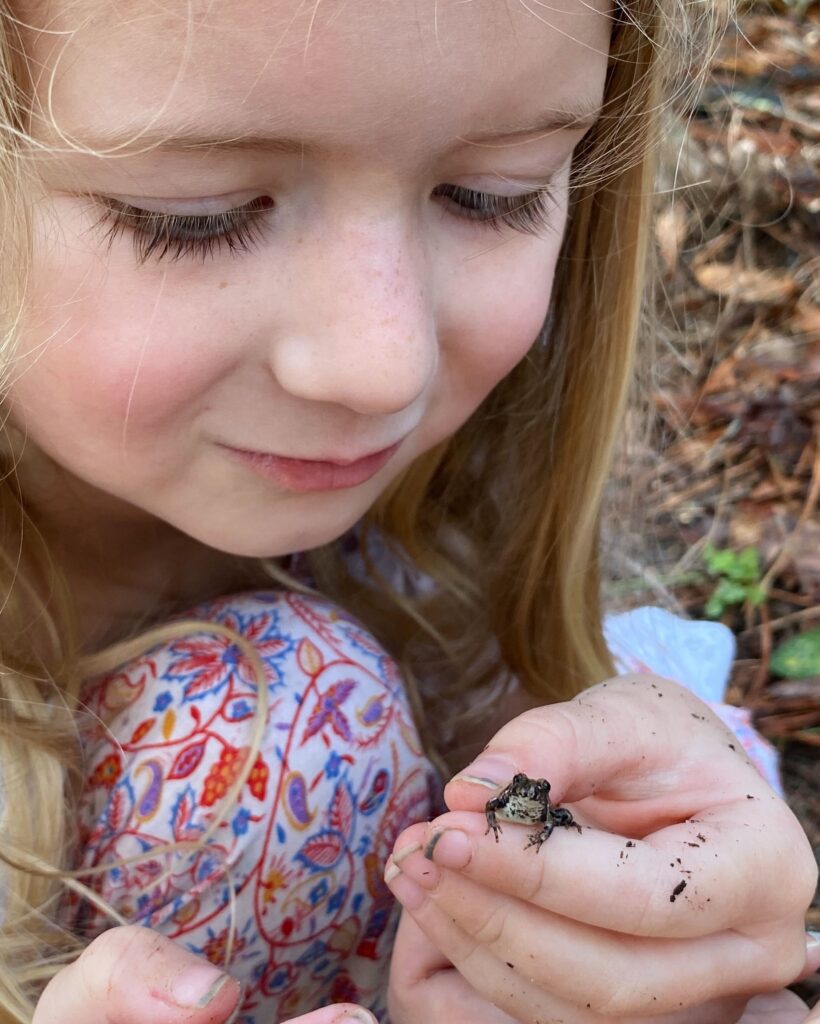
“People who live in the country know the value of fresh air very well, and their children live out of doors, with intervals within for sleeping and eating. … every hour spent in the open is a clear gain, tending to the increase of brain power and bodily vigour, and to the lengthening of life itself. They who know what it is to have fevered skin and throbbing brain deliciously soothed by the cool touch of the air are inclined to make a new rule of life, ‘Never be within doors when you can rightly be without.’” (Vol. 1 p. 42)
@tessakeath
March 12, 2024
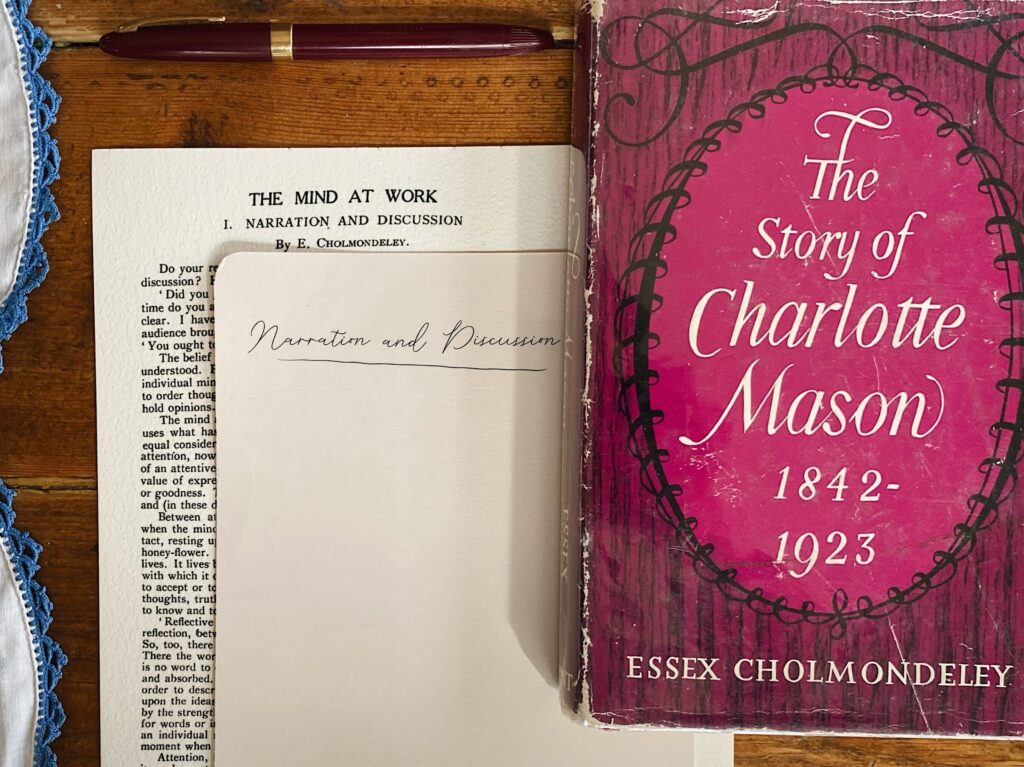
For many of us, discussion seems to be indispensable to learning. Whether it is a book discussion, a Bible discussion, or a discussion after a lecture, it seems to be almost synonymous with digging deeper and appropriating the ideas one is encountering.
Many in the Charlotte Mason community naturally assume that discussion plays a role in this method of learning too. Sometimes it goes by a different name — conversation, or “grand conversation” — and sometimes it is simply labeled “discussion.” We seem to expect it, but its relationship to narration, a staple of a Charlotte Mason education, seems unclear.
In 1944, Essex Cholmondeley took this question head-on. In the 1940s, discussion was emerging as a primary mechanism of learning. How did it relate to the Charlotte Mason approach? Cholmondeley was a former principal of the House of Education and a future biographer of Charlotte Mason. She was well-qualified to consider the question.
Cholmondeley’s exploration of discussion and narration begins with the nature and function of the mind. Her article serves as a fitting conclusion to our series of vintage articles on topics related to narration. Read or hear it here, and we welcome your “discussion” in the comments!
@artmiddlekauff
March 13, 2024
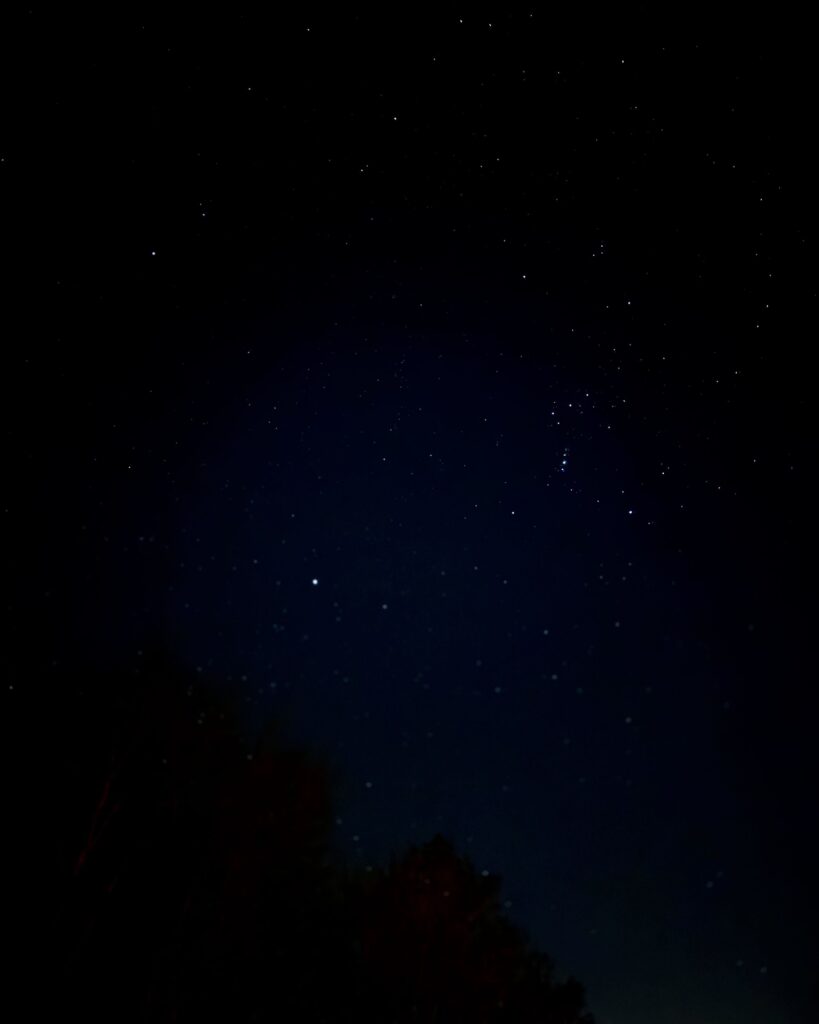
Even though there aren’t any meteor shows this month, March offers some spectacular night skies.
The crescent moon has been amazing the past few nights and tonight it joins both Jupiter and Uranus. According to astronomy.com, it’s the same night 243 years ago that William Herschel discovered Uranus from his backyard in Bath, England! You should be able to spot the planet about 6° due east of the moon.
Happy star & planet gazing!
@rbaburina
📷 @aolander
March 14, 2024
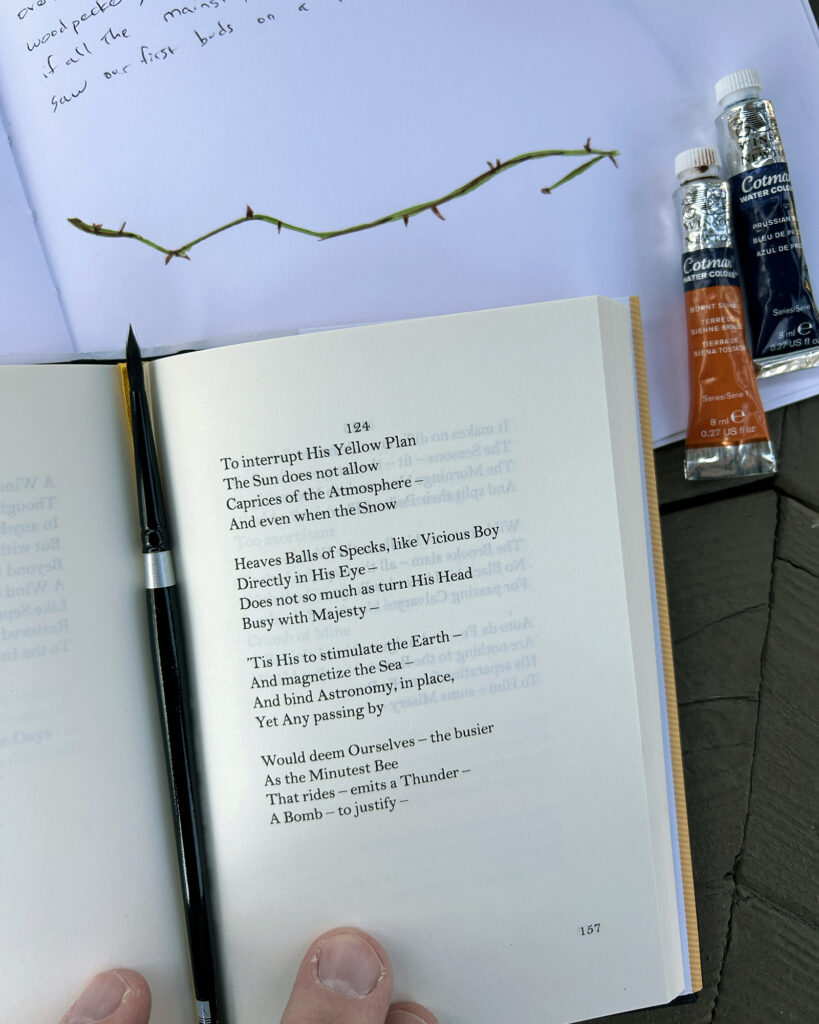
“There will be another snow,” my son solemnly warned, even as I waxed on about red-winged blackbirds and other signs of spring. I had my doubts but I held my peace. Perhaps my son, like the flowers and birds, knew better than I what the season still had in store.
Sure enough the next week as we set foot on the nature trail it was covered with a dusting of snow. “You were right,” I said. But still I faintly heard the metallic ring of my red-winged friends.
“To interrupt His Yellow Plan,” Emily Dickinson reminds us, ”The Sun does not allow.”
And even when the Snow
Heaves Balls of Specks, like Vicious Boy
Directly In His Eye —
Does not so much as turn His Head
Busy with Majesty —
’Tis His to stimulate the Earth —
Though path and branches were dusted with snow, my eye still spotted a bud. The first buds of spring. The vicious balls of snow could not stop the sun’s work.
“The teacher too is a person in need of mental food,” wrote Elsie Kitching, “and it is as the teacher shares a common banquet of living food with the child that … dominating personality on the teacher’s part, and of inanition on the part of the child, cease to exist.” Perhaps this is no more evident in nature study, when buds and verse stir parent and child alike. And who could not then paint?
@artmiddlekauff
March 15, 2024

And, just like that, the river is no longer walkable!
Sure, we have lots of winter ahead of us in ❄️ Manitoba, but the river is thawing, the geese are coming back to us, and spring is on its way!
@antonella.f.greco
March 16, 2024
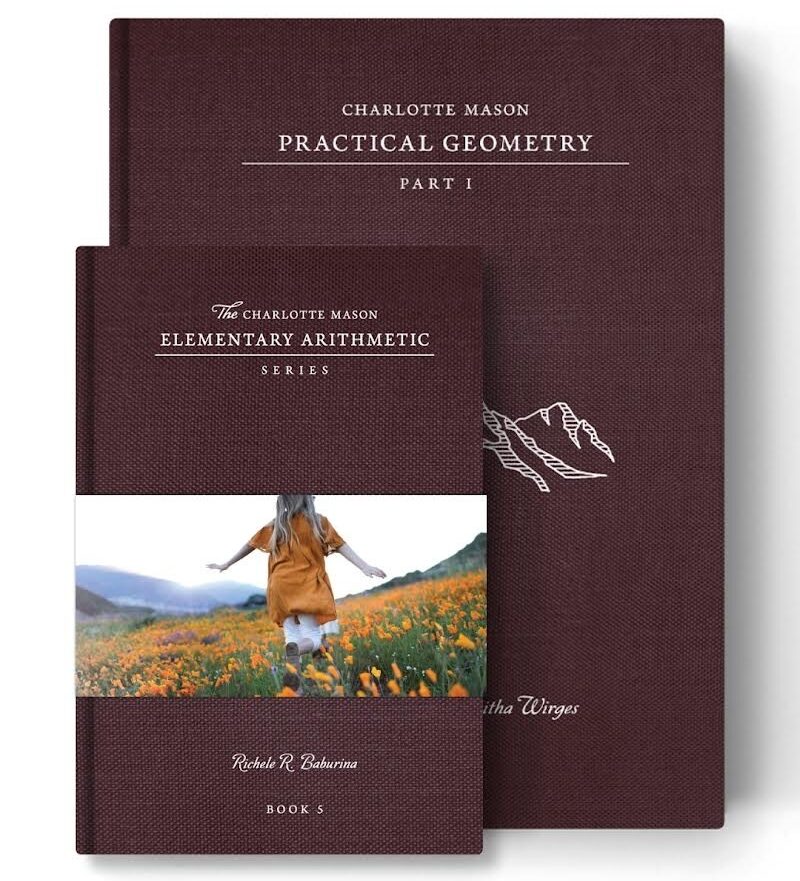
I’m so excited to introduce Book 5 of the Charlotte Mason Elementary Arithmetic Series and its companion—Practical Geometry, Part 1! Together, they follow Charlotte’s approach with four days of the week given to the continued study of arithmetic and one day to explore foundational ideas of geometry in a hands-on way (traditionally begun the fifth year of a child’s formal education).
Follow this link to download free samples and see how you can guide your student with confidence to nurture mathematical thinking, use tools like a straightedge and compass, and see that geometry and arithmetic aren’t two separate sciences, but are connected by converging pathways in the wondrous realm of mathematics!
@rbaburina
March 17, 2024
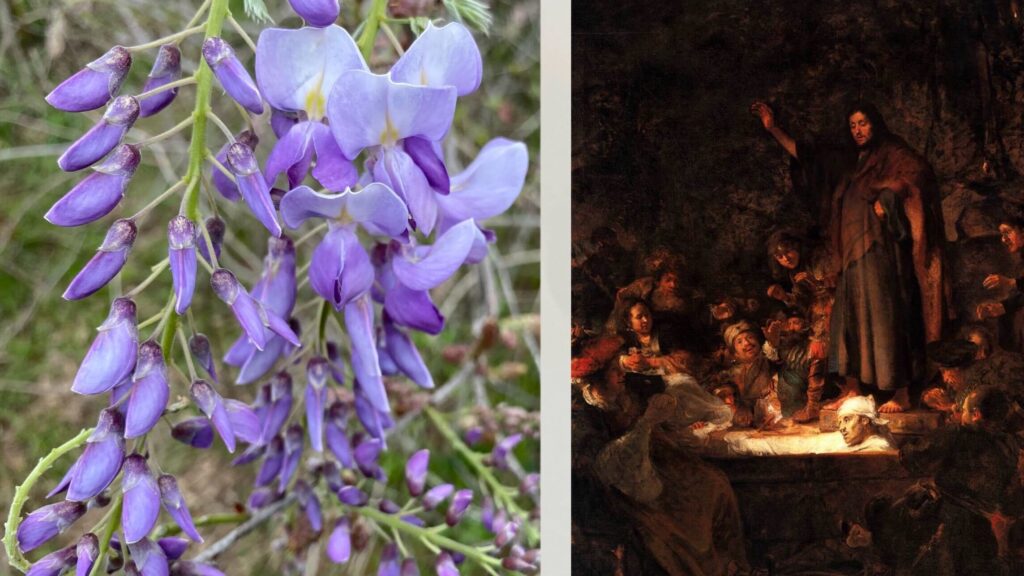
One of the great theological and devotional passages in Charlotte Mason’s writings appears in Book II of Ourselves. There she tackles the question that has baffled lay person and philosopher for centuries: the problem of evil. How do we reconcile a loving God with the suffering we see in the world?
Mason’s reflections on pages 89–90 of Ourselves are stunning. “Christ wept,” she writes, “not for Lazarus: his sorrow was for the griefs that fall upon all men, as upon the two sisters. Perhaps He would have said, ‘If they only knew!’”
Charlotte Mason’s final poem on the raising of Lazarus is the complement to this reflection in Ourselves. Entitled “The man who knew,” the poem considers the perspective of one who had spent four days on the other side of death. Her poem is more surprising and mysterious even than her reflections on the problem of evil in Book II of Ourselves. If only we knew, how would our life be different? Listen, read, and wonder here.
@artmiddlekauff